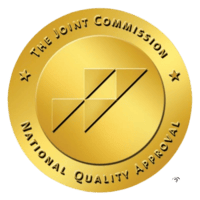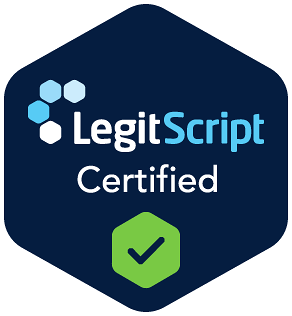Personalized Care
Personalized care in addiction treatment is crucial because it acknowledges each individual’s unique circumstances and needs, ensuring a more effective and tailored recovery journey. Data shows that individuals receiving customized treatment plans have a 30% higher success rate. Tailored therapy incorporates various elements such as cognitive-behavioral therapy, medical detox, and holistic approaches, all designed to cater to an individual’s history and preferences.
Personalized plans are crafted from detailed medical history assessments, psychological evaluations, and social factors. Initially focusing on intensive counseling, the plan can shift towards skill-building for long-term resilience as the patient stabilizes. This approach offers hope and tangible progress for those working toward recovery.
Community Support
Community support is often the cornerstone of successful addiction recovery, providing a network of encouragement and accountability. Research indicates that individuals engaged in community support systems are 50% more likely to maintain long-term sobriety. Peer mentorship plays a critical role in this dynamic, with seasoned mentors offering newcomers insights and hope, fostering belonging and respect. Volunteer opportunities within these communities can be transformative. Volunteering instills purpose, self-esteem, and social connections, crucial for sustained recovery.
Studies reveal that those who volunteer during their treatment show a 40% increase in positive recovery outcomes. Essentially, community support is not merely an add-on but an essential component of addiction treatment. It creates a nurturing, empowering environment conducive to lasting change.
Accessibility and Convenience
Selecting a nearby facility can be a pivotal step toward successful rehabilitation. The accessibility and convenience of available resources significantly impact an individual’s likelihood of seeking and sticking with the necessary care. Individuals are more likely to attend sessions consistently when they do not have to travel long distances. A 2020 study revealed that patients living within a 10-mile radius of their treatment center had a 25% higher retention rate compared to those who traveled farther. At BlueCrest Detox, we prioritize convenient access to our facilities to support consistent treatment engagement.
Travel time is another critical factor. The less time spent commuting, the more time can be dedicated to recovery activities, such as therapy sessions and support groups. This approach minimizes barriers, making it easier to integrate treatment into daily routines. Shorter travel times can reduce stress and fatigue, significant hurdles in the journey to sobriety, fostering a stronger connection to community resources.
Cost Considerations
Understanding the financial landscape is essential when accessing local addiction treatment. With coverage options varying widely, it becomes crucial to assess potential out-of-pocket expenses to avoid unexpected financial strain. Balanced assessments greatly influence treatment choice and its sustainability. Insurance coverage options are challenging, and managing them wisely is vital. The first step is to scrutinize insurance policies to identify covered addiction treatments.
Some policies may only cover specific therapies. Understanding which local providers are within an insurance plan’s network can save substantial costs and ensure timely access to care. By managing these intricacies diligently, individuals can maximize their insurance benefits and minimize financial strain during recovery. Transparent communication with treatment centers regarding out-of-pocket expenses ensures a feasible financial plan, allowing the focus to remain on healing and progress.
Privacy Concerns
Ensuring the confidentiality of individuals seeking addiction treatment is paramount, as privacy concerns often deter many from pursuing the help they need. Local addiction treatment centers must adhere to stringent privacy protocols. Enhanced data encryption ensures patient data is secure, while strict access controls limit information access.
Regular audits and training maintain a strong defense against potential threats, fostering an environment where individuals feel supported. These measures mitigate the risk of personal information being exposed, which can be paralyzing, ensuring that individuals feel safe and supported in their journey to recovery.
Quality of Facilities
The quality of facilities is a critical factor in addiction treatment success, significantly impacting patient outcomes and the recovery experience. Patients in high-quality facilities are more likely to complete their treatment programs. Facility amenities, including comfortable living spaces, recreational areas, and wellness programs, are vital. These amenities enhance physical comfort and contribute to mental well-being, creating a conducive recovery environment.
Equally important are staff qualifications. Certified addiction counselors, experienced therapists, and skilled medical personnel ensure patients receive tailored, evidence-based care. A 2020 study found that patients in facilities with extensive amenities reported a 30% higher satisfaction rate, showcasing the importance of investing in quality facilities for lasting recovery.
Specialized Programs
Specialized programs in addiction treatment centers cater to individuals’ unique needs, greatly enhancing recovery outcomes. These programs address specific circumstances, ensuring a higher likelihood of sustained sobriety. Programs incorporating cultural sensitivity enable better communication and trust, leading to improved patient engagement. Holistic approaches address the whole person, fostering thorough recovery.
Additionally, targeted therapies, such as LGBTQ+-focused groups or women’s programs, address unique issues, enhancing relevance and impact. These programs create an inclusive and effective treatment environment encouraging a comprehensive recovery process tailored to individual needs.
Family Involvement
Involving family members in the treatment process can greatly enhance recovery outcomes. Research shows that family participation in addiction treatment can reduce relapse rates and improve mental health outcomes, fostering a healthier family unit. Education and awareness help reduce stigma, while emotional and practical support aids recovery.
Families provide logistical support, helping manage daily responsibilities. Leveraging family involvement can greatly enhance recovery outcomes, as demonstrated by studies showing enhanced overall well-being. This holistic approach promotes long-term sobriety by creating a stable home environment conducive to recovery.
Long-Term Support
Securing long-term support is essential for sustaining recovery. Studies show that individuals with continuous access to aftercare services are considerably more likely to maintain sobriety. Alumni programs and peer mentorship play pivotal roles. Data reveals that sustained engagement in aftercare services can halve the risk of relapse, highlighting the importance of long-term strategies.
Local programs incorporate various forms of support, including alumni programs, peer mentorship, and regular support groups. These components create a robust framework that supports initial recovery and fortifies long-term sobriety, ensuring lasting recovery and reducing the likelihood of relapse.

Final Thoughts
Local addiction treatment offers a vital approach that greatly improves recovery outcomes. Personalized care plans, supported by community resources, guarantee tailored treatment. Proximity and flexible payment options enhance accessibility and affordability.
The quality of facilities and specialized programs further contribute to effective recovery. Family involvement and long-term support systems play essential roles in sustaining sobriety. Understanding these benefits and considerations is necessary for seeking thorough and effective addiction treatment. At BlueCrest Detox, we’re dedicated to elevating you from the struggles of substance use to the peaks of recovery and resilience. Our expert team offers personalized, evidence-based treatment services tailored to support your unique journey toward healing. Reach out to us for the compassionate care you deserve on your path to wellness. Follow us on Facebook for ongoing support, insights, and inspiration on your recovery journey.
Frequently Asked Questions
How Do I Verify the Credentials of Local Addiction Treatment Professionals?
To confirm the credentials of local addiction treatment professionals, utilize license verification databases and review professional affiliations. This data-driven approach guarantees you engage with qualified experts, enhancing the effectiveness and reliability of the treatment received.
Are There After-Care Programs Available Once Primary Treatment Is Completed?
Many after-care programs are available, including support groups and family involvement initiatives. These programs are designed to provide ongoing support and leverage data-driven techniques to guarantee sustained recovery and prevent relapse.
What Should I Look for in a Reputable Local Addiction Treatment Center?
Consider the facility amenities and program duration when choosing a reputable local addiction treatment center. For best results, look for thorough support services, personalized care plans, and a timeframe that aligns with your recovery needs.
How Do Local Treatment Centers Handle Emergency Situations or Medical Crises?
Local treatment centers handle emergency situations using strict medical protocols and thorough crisis management strategies. These include immediate medical intervention, coordination with emergency services, and ongoing staff training to guarantee patient safety and effective response.
What Types of Therapies Are Commonly Used in Local Addiction Treatment Programs?
Local addiction treatment programs commonly employ Cognitive Behavioral Therapy (CBT) and Group Therapy. CBT helps individuals identify and change negative thought patterns, while Group Therapy fosters peer support and shared experiences, enhancing overall recovery outcomes.




